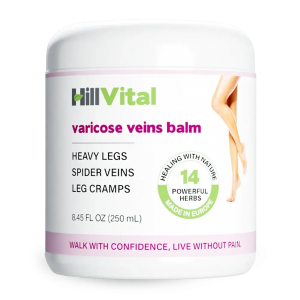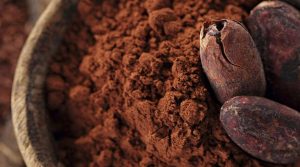


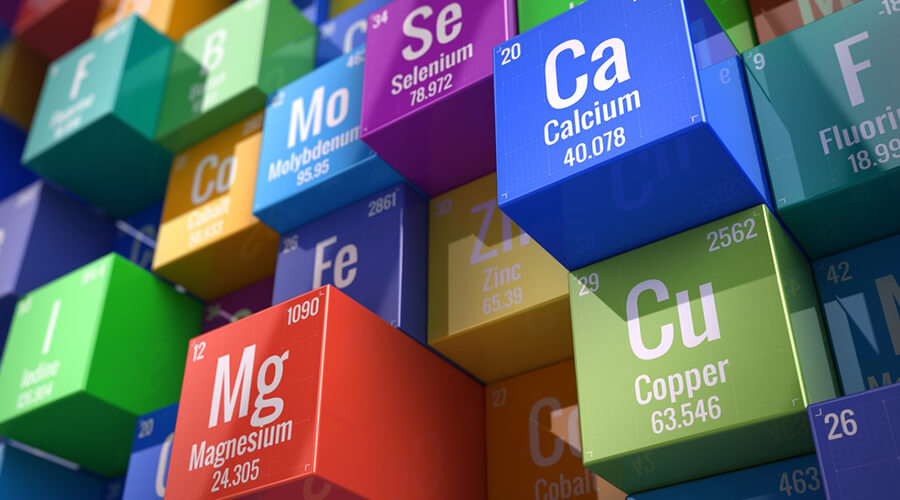
Although most advertising suggests that vitamins are essential for the proper functioning of the body, minerals are just as important for good health.
The importance of minerals is also shown by the fact that while the body can produce some vitamins, it cannot produce minerals and they must be obtained from outside through the diet. Today, almost everyone knows how important vitamins are in the human diet. However, far fewer people are aware that without minerals, vitamins cannot have any beneficial effects.
For the long-term and perfect functioning of the body, not just one substance is enough, but all the proportions are important and the balance must be maintained. Normal proportions should not be shifted in one direction or another by excessive intake of one substance and neglect of another. Strive for balance to avoid deficiency diseases. This is best achieved through a good, balanced diet, as this is the key to avoiding deficiency diseases.
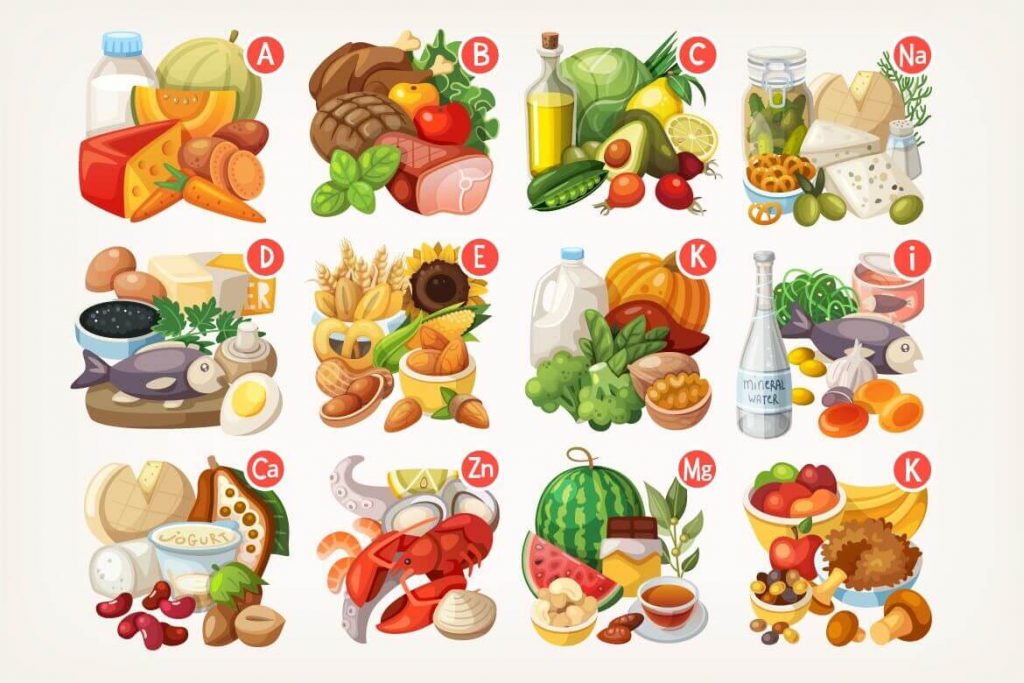
There are the macroelements and the microelements. The elements that are present in our body in quantities greater than 5% of the body’s weight are called macroelements, and those that are present in smaller quantities are called microelements.
Because minerals interact with vitamins, if one is missing, your body can’t function at its best. Replenishing the most important minerals is vital.
Many people think that the 3 most important minerals for the body are calcium, magnesium and iron. However, fewer people are aware of what else the body needs.
One of the 15 essential minerals is Phosphorus. The adult human body contains 600-700 g of phosphorus in the form of organic and inorganic phosphates. It plays an important role in protein, carbohydrate and fat metabolism. Phosphorus is responsible for 80-85% of the strength of bones and teeth. It is also necessary for the functioning of the nervous system, protein synthesis and enzymes. Phosphorus is found in practically all foods, in varying percentages. Daily requirement: about 620 mg
The human body contains about 0.15% chlorine, which plays an important role in digestion, salt-water balance and acid-base balance as part of stomach acid. It is mainly consumed in the form of table salt. The average person’s daily intake of chlorine is too high, due to salty foods and chlorinated tap water. There is absolutely no need for external supplementation.
The average adult human body weight contains 1-1.2 kg of calcium, 98% of which is found in bones, 1% in teeth in the form of calcium phosphate and 1% in the blood. Its vital role is to maintain the hardness and compressive strength of bones. However, this small amount is responsible for regulating excitability, inducing muscle contraction, blood clotting and the function of certain enzymes. Milk and dairy products and oilseeds are the richest in calcium. Daily intake is 800 mg for adults and 1200 mg for children for bone development. Vitamin D ensures its perfect absorption.
There are about 150 g of potassium in an adult human. In a mixed diet, the average daily intake ranges from 2 to 3 g, which covers the body’s needs. Virtually all foods contain potassium, but the potassium-sodium ratio in foods of plant origin is skewed in favour of potassium, which is why they are more readily utilized. Potassium, together with sodium, is involved in excitatory processes, including the proper maintenance of nerve and muscle function.
An adult human body contains about 20-28 g of magnesium, half of which is found in the skeletal system and the rest mostly in cells. It plays a role in nerve and muscle function, and in protein, carbohydrate and fat metabolism through the action of many enzymes. The recommended daily intake is 300 mg.
The adult body contains between 80 and 95 g of sodium, 60-65% of which is in exchangeable form in the body’s water spaces, the rest in bound form in bones and connective tissues. During strenuous physical work, in high temperature environments and when sweating profusely, up to 8 g of sodium can be lost. However, there is no need to worry, as food processing techniques add significant amounts of salt to certain foods, and the intake is sufficient even in the course of established cooking techniques and eating habits.
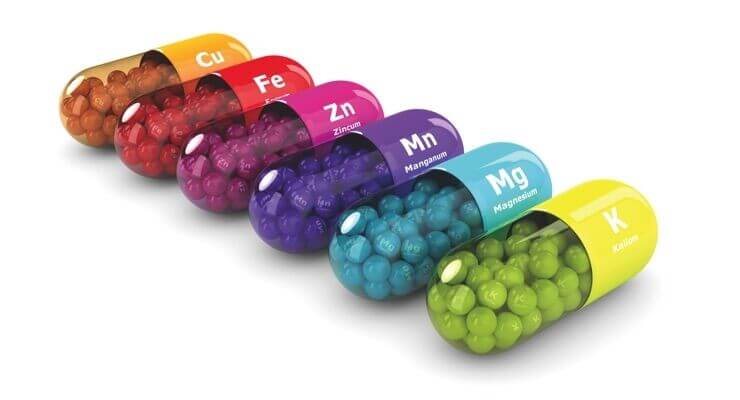
In highest concentrations in the eyes and hair, but also found in the liver, kidneys and muscles. Our body contains about 2.5 g of zinc, which is a component of many enzymes, including insulin produced by the pancreas, and about 70 different enzymes. It shortens the recovery time for colds, colds and sore throats. Best sources of zinc: meat, liver, eggs, beans, peas, lentils. It is better utilized from animal sources than from plant sources. Daily requirement: 15 mg
Most of the body’s fluoride (about 95%) is found in bones and teeth. Fluoride requirements (1.5 mg/day) should be met by the food we eat (e.g. sea fish, corn, marjoram, parsley greens). It is mostly found in vegetables and fruits and is therefore as complete as possible for the body.
The body contains about 15-20 mg of iodine, 70-80% of which is found in the thyroid gland, because iodine is an integral part of thyroid hormones, and is therefore involved in the regulation of metabolism, influences growth, the nervous system and indirectly affects blood circulation. Iodine-rich: marine fish, shellfish, iodised table salt. Daily requirement: 0.15 mg.
Chromium is present in tissues in very low concentrations and decreases with age. The exact amount of chromium in the human body is not known, but it is actively involved in carbohydrate metabolism and promotes the action of insulin. Its deficiency is thought to be one of the causes of coronary heart disease and diabetes. Chromium is found in wholegrain cereals, legume seeds, meat, liver, eggs and cheese. The recommended daily intake has not been established, but the optimum dose is usually given as 50-200 micrograms.
We have 12-20 mg of manganese in our body, and manganese deficiency does not occur with a mixed diet. Absorption is only 3-4%. Rich in manganese: cereals, wholemeal cereals, nuts, hazelnuts, eggs, spinach, parsley. Manganese deficiency: may be a cause of forgetfulness.
Molybdenum is found in very small amounts in our bodies. High molybdenum intake causes copper deficiency, and meat and pulses are sources of molybdenum. Molybdenum deficiency causes psychological instability (irritability) in mild cases and neurological symptoms such as visual impairment in severe cases. Depending on age, the daily requirement is 30-250 micrograms in children and 250 micrograms in adults.
80 mg is found in the human body, mainly in the eye, liver, heart, kidneys, muscles and brain. It is also required for blood formation and the proper functioning of the central nervous system. Among the raw materials in food, liver, eggs and pulses contain the most copper. Copper deficiency: premature greying, loose, wrinkled skin, circular eyes, hair loss.
Selenium’s function is closely related to that of vitamin E, i.e. it acts as an antioxidant, binding free radicals and thus inhibiting the development of cancer. It is involved in the binding and removal of heavy metals (arsenic, mercury, etc.). Low blood levels of selenium also increase the risk of heart disease. We have about 6 mg of selenium in our body, with the highest concentration in the liver, but it can also be found in tooth enamel and nails. Good sources of selenium include seafood, liver, kidney, meats (beef, lamb, game), fresh tuna, wholegrain cereals, garlic, nuts, sesame seeds, sunflower seeds.
Iron plays a very important role in the human body. When iron intake is low, the body uses iron from these stores, only to deplete them when the haemoglobin content of the blood decreases and anaemia develops. Iron absorption is reduced by tannic acid-containing nutrients such as coffee and tea. The body stores about 3 g of iron in men and 2.3 g in women. 70% of the body’s iron stores are stored in haemoglobin, the rest in the liver, spleen and bone marrow. Women have a higher iron requirement during pregnancy and after childbirth. Plant-based sources: plums, hazelnuts, poppy seeds, sauerkraut, sunflower seeds, walnuts, cocoa, rosehips, beetroot, brown rice, lentils, soya flour, egg yolks, persimmons, pumpkin.
It is difficult to choose what is the most important essential minerals for the body, as each plays a critical role in the functioning of the human body.



